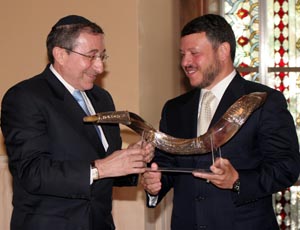A story on horrific poverty oddly gives me hope for local TV news.
As a local TV news/sports anchor for almost 30 years, one of my biggest problems with the business was when young producers or reporters would cut-and-paste a story from the Associated Press and just report it as gospel. I’m sure there were times when I made this mistake as well, but there were also times when I would take information I knew was inaccurate and change it in the script or just change it “on the fly” on set. Then I would spend the next two hours in meetings having to explain why I did what I did. Usually, my answer went something like this, “If I’m the face of this story, I’m not going to report something I know is inaccurate just because the AP says it is.” I would win the battles with facts, but after a while stations prefer to have news anchors who just shut up and read (if that makes sense).
This brings me to the remarkable thing that KNBC in Los Angeles did this week. A recent AP story claimed that 1 in 2 people were poor or low-income. A startling number, certainly. KNBC just flat out said that those numbers may be way off.
“Those figures appear to be wrong, perhaps based on a misunderstanding of the data by journalists who did not go back to the source to doublecheck their figures, said analysts at the U.S. Census Bureau district office in Los Angeles.”
Kudos to KNBC for doing its homework, double-checking the numbers and not just cutting-and-pasting from the Associated Press. Of course, if KNBC is right, you’ve got to wonder why the AP got this so wrong and how many other local stations across the country just reported the story as they got it from the AP. Online that 50% number, that KNBC says is inaccurate, spread like wildfire.
With local stations doing more and news programming (because once you have a news department, it’s the cheapest way to fill an hour) and staffs getting younger and smaller, it’s important that local TV stations pay attention to what the AP and other news outlets are feeding them. Consultants who rule local TV news these days will never tell them this because they are more interested in hair cuts and ties. But it’s rather important to double-check facts, no matter where they come from.

COMMENTS
Please let us know if you're having issues with commenting.